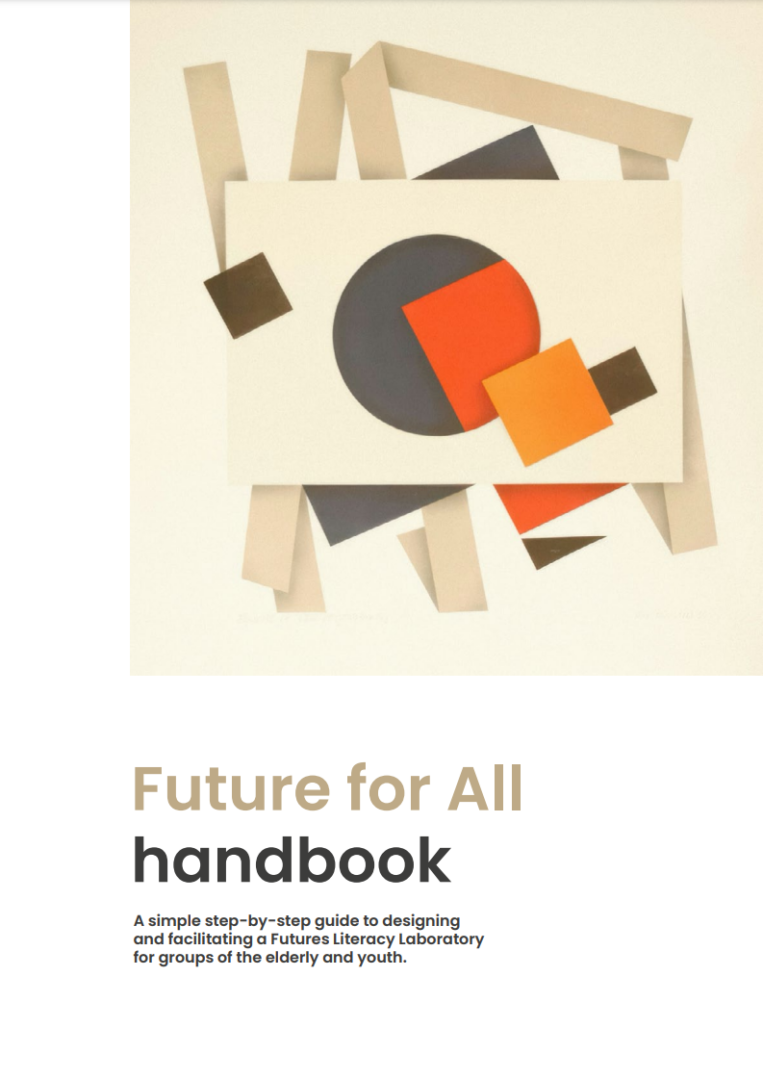The “Future for All” Handbook is an insightful guide for designing and facilitating Futures Literacy Laboratories (FLLs), an innovative method to empower people to envision alternative futures and challenge their assumptions about the present. This publication, part of the “FUTURE FOR ALL” project, bridges generational gaps by engaging youth and seniors in interactive workshops aimed at fostering collaboration and fresh perspectives on societal challenges.
Key highlights include:
- Introduction to Futures Literacy: Defined as the ability to imagine diverse futures to broaden thinking about the present, it is framed as a critical tool for navigating modern uncertainties and opportunities.
- Workshop Structure: The FLL approach unfolds in four phases:
- Reveal participants’ current assumptions about the future.
- Reframe these assumptions using imaginative scenarios.
- Reflect on new insights gained.
- Act by turning ideas into actionable plans.
- Practical Guidance: The handbook provides step-by-step instructions for workshop facilitators, from planning topics and logistics to utilizing exercises like the Polak Game and crafting custom reframing scenarios.
- Reframing Scenarios: Five imaginative narratives challenge participants’ thinking, such as:
- “Super Organisers”: Communities self-managing resources post-state service collapse.
- “Park City”: Transforming urban landscapes into collective green spaces.
- “New Art of Communication”: A cultural shift towards diverse interpersonal styles.
- Cross-Generational Focus: Tailored approaches are designed to resonate with youth, seniors, or mixed groups, such as envisioning “My Life in 2050” or “An Aging-Friendly Warsaw.”
- Outcomes and Impact: Participants emerge equipped to challenge assumptions, creatively engage with the future, and identify actionable steps to shape society.
Supported by UNESCO and EU innovation frameworks, this handbook is a versatile resource for educators, policymakers, and community leaders aiming to harness the power of foresight for social progress. Its methodologies not only spark dialogue but also cultivate agency and resilience in addressing future uncertainties.
 Homepage CASE
Homepage CASE

